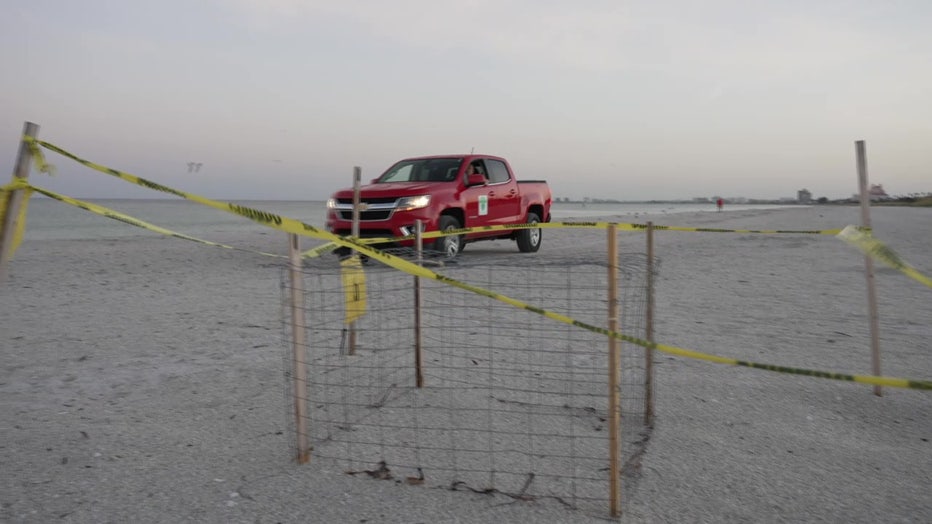Sea turtle trackers remain vigilant as nesting season winds down
ST. PETERSBURG, Fla. - As sea turtle nesting season comes to its final stages, millions of eggs are hatching and though these hatchlings face a gauntlet of different dangers, sea turtle trackers are helping save these reptiles before they are even born.
Since 1979, a volunteer-based organization called Sea Turtle Trackers has been helping sea turtles and empowering people to do the same. The organization’s goal is to minimize the human impact on sea turtle habitats with as little intervention as possible and provide a natural experience for the reproduction of turtles on our beaches.
Joe Widlanski, aka ‘Turtle Joe’, can be found cruising St. Pete Beach every morning during turtle season, which runs from April until October. He arrives right at dawn and drives the beach looking for the telltale signs of turtles and their nesting activity.
First, the volunteers look to see if the turtle actually nested. Then they will steak out the nest and then rope it off with the yellow tape. Sometimes they put a cage around it to keep the coyotes away.
"This year was a particularly rough year for the sea turtles. They’ve had a lot of obstacles with the red tide. They’ve had obstacles with storms, you know, rising water where the nest will get washed over. That’s happening more and more frequently," Widlanski explained.

He also says one of his most favorite things about turtles is the fact that they are very resilient and even though they’ve had many challenges this year, Wildlanski says this has been a good year for sea turtles. So far the sea turtle trackers have counted more than 70 nests on St. Pete Beach.
"Widlanski states, "It’s important to me because I like to see nature and its glory and the turtles are a large part of that."
The sea turtle trackers say the biggest threat to the baby sea turtles is vehicle traffic and that’s why it’s so critical for them to find the nests and rope them off so vehicles will be aware of where they are located.
CONNECT WITH FOX 13:


